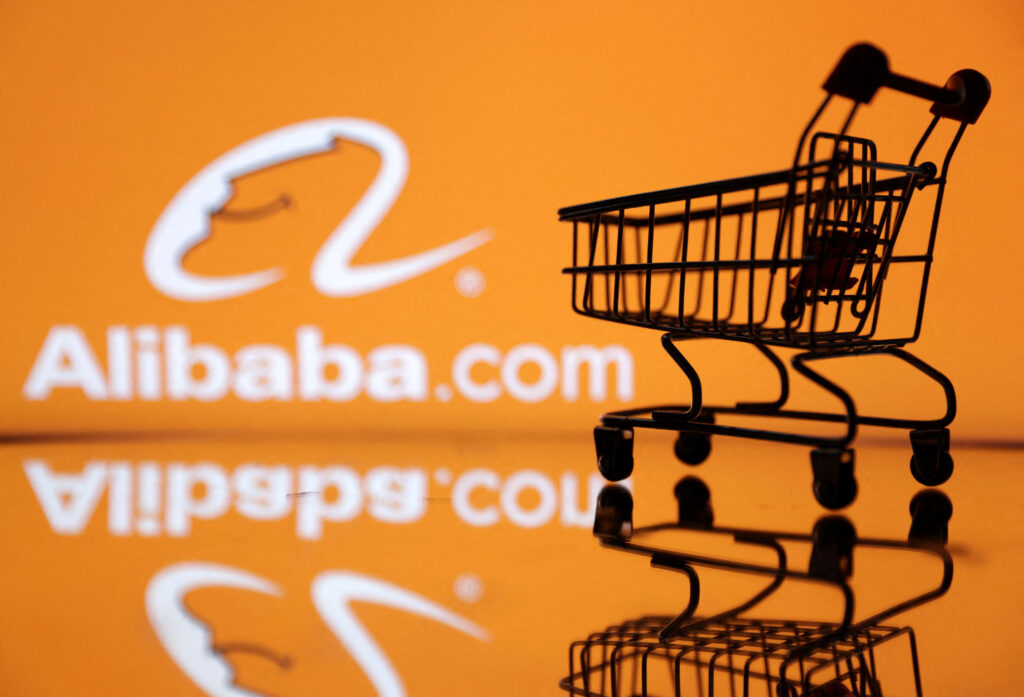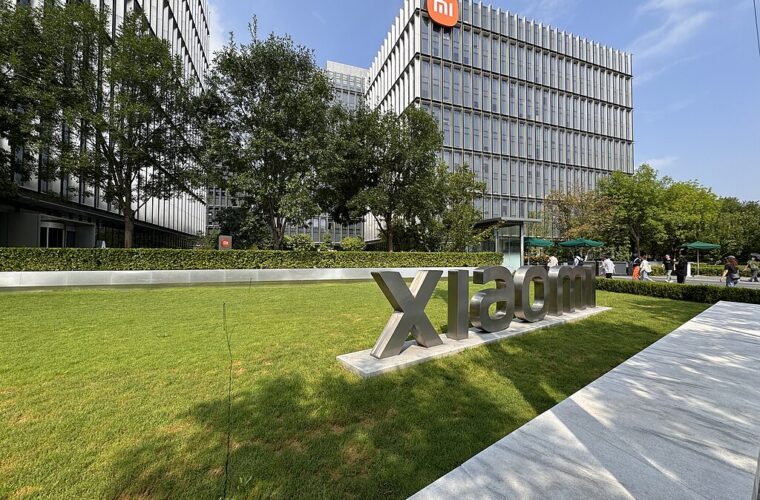By Casey Hall and Yuvraj Malik
(Reuters) – China’s Alibaba Group Holding reported its strongest quarterly revenue growth in almost two years on Thursday as its domestic e-commerce unit focuses on low-cost products to attract consumers amid a sober economic environment.
The Chinese e-commerce giant posted first-quarter revenue of 234.16 billion yuan ($32.29 billion), up 14% from the prior-year quarter which was hit by strict pandemic lockdowns. The figure beat analysts’ estimates of 224.92 billion yuan, according to Refinitiv data.
The company’s U.S.-listed shares rose as much as 5.6% to $100.1 in early trading.
“Most investors had expected an okay quarter, but the magnitude of the outperformance, especially on the profit beat likely exceeded most expectations,” said Alicia Yap, an analyst at Citi Bank. Alibaba’s net profit rose 51% year-on-year.
The latest revenue figure represents an improvement from flat to 3% growth in the past four quarters.
However, fears have grown about China’s economy, which has faltered after an initially brisk recovery from the lifting of COVID curbs late last year. On Wednesday, China reported it tipped into deflation in July at the consumer price level – a development expected to further weigh on shoppers’ will to spend.
“The latest macro data indicates some uncertainties in the pace of post-COVID recovery, but as economic and consumer activities continue to resume, our businesses demonstrated encouraging trends,” Alibaba Group CEO and Chairman Daniel Zhang told analysts in a post-earnings call.

Revenue in the first quarter to end-June was helped by a recovery in consumer purchases on Alibaba’s Taobao and Tmall marketplaces, boosted in part by the 618 shopping festival, China’s second-largest online shopping event, in June.
Competition has increased recently from rivals known for offering low-cost products, such as PDD Holdings Pinduoduo and ByteDance’s Douyin, the Chinese version of TikTok, both of which pose major challenges to Alibaba.
In response, Trudy Dai, CEO of Taobao and Tmall Group, said Alibaba would invest more to attract bargain hunting consumers, especially young people, older people and shoppers from China’s lower-tier cities.
“Our value-for-money battle will continue and will be an area of major investment,” Dai said.
A 6.5% increase in daily active users in June for the Taobao app – which tends to sell lower cost merchandise than brand-dominated Tmall – was cited as one indicator of improvement.
Sales at Cloud Intelligence Group, a major growth driver outside of e-commerce, reported the smallest revenue growth among the group’s six business units of 4%, but the division’s underlying profit more than doubled as its workplace collaboration tool, Dingtalk, helped to reduce costs.
This was the last earnings announcement under Zhang, who will step down from his roles in September to focus on leading its cloud division.
The cloud unit is expected to seek an IPO soon, with Alibaba in May saying it would spin off the division to pursue an IPO within 12 months.
The CEO role will be handed over to Eddie Yongming Wu, chairman of Alibaba’s Taobao and Tmall Group, while Executive Vice Chairman Joseph Tsai will take over as chairman.
Regulatory concern has eased for China’s tech giants, including Alibaba, this year, with Chinese authorities keen to boost private sector confidence.
This was the first set of quarterly results for the $241 billion market-value behemoth since it split its business into six units, which many experts said could also ease scrutiny over the tech giant.
(1 Chinese yuan renminbi = $0.1387)



